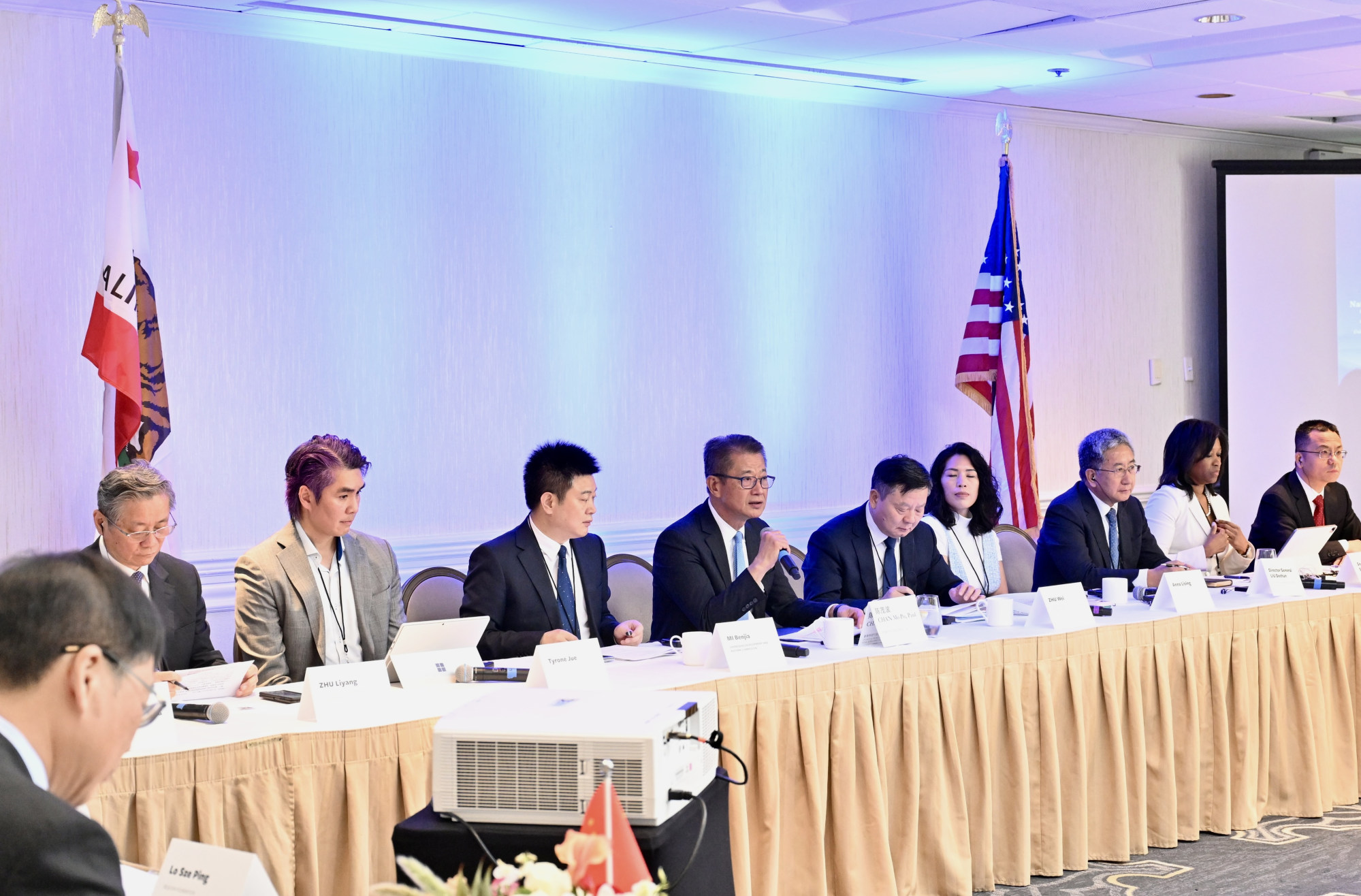Hosted by UC Berkeley’s California-China Climate Institute, the two-day event was joined by Hong Kong, Macau and Guangdong officials as a joint delegation to promote the Greater Bay Area to their US counterparts. Hong Kong’s Financial Secretary Paul Chan Mo-po was among the speakers.
In his speech at the opening session, Xie said that a meeting earlier this month of the China-US Working Group on Enhancing Climate Action had been “in-depth and productive”, with participants focusing on the issues previously identified at Sunnylands, from the countries’ energy transitions to methane emissions and deforestation.
“We have to get the climate problem under control. The US and China must lead the way even as the overall relationship between our two countries has increasingly been characterised by competition,” Xie told hundreds of attendees.
“It’s so important for subnational actors across countries to get together to collaborate with and learn from each other.”

US ambassador to China Nicholas Burns similarly stated that the vision of Sino-US cooperation needed to be translated into “real action” at the subnational level, with the participation of enterprises, think tanks and social organisations from both countries.
“The China-US climate operation is inseparable from the overall China-US relationship,” Burns said. “It certainly would not work if one opts for dialogue and cooperation, but keeps damaging the other side’s interests at the same time.”
They also attended the “Bay-to-Bay Dialogue” which was held concurrently to promote cooperation between the Greater Bay Area in China and San Francisco Bay Area in the United States.
A few of the deals announced on Wednesday were between California and different levels of Chinese governments and institutions, including the National Development and Reform Commission on low-carbon development and green transition targets, and Guangdong’s environment authorities.
Others included Chinese province Hainan and California inking a joint work plan for the year, as well as an agreement among Oregon, Tianjin and Fujian to jointly host a climate change forum in the next few months. There were also agreements between private companies and academic institutions.
California Governor Gavin Newsom, who has pushed for more aggressive climate action in recent years, also made remarks at the high-level event.
Newsom recalled his meeting with Chinese President Xi Jinping during a trip to the mainland and Hong Kong last October and praised the efforts of Greater Bay Area authorities in tackling climate change.
“I had the privilege of visiting with President Xi, open hands, not a closed fist to address the issue of our time, in the context of our shared humanity,” he said, adding that he was “filled with optimism”.
“We’ve seen what China has done in a very short period of time.”
Wang Weizhong, Guangdong’s governor, pledged to strengthen cooperation with American counterparts in the exchange of advanced technology solutions to climate change.

